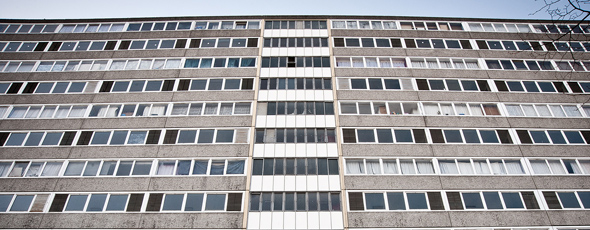 A home is such a basic need that the provision of adequate and decent housing should be a fundamental requirement of a fair society. But what do we require of a home beyond sound and safe shelter that can accommodate our household in a reasonably convenient location? Security of tenure is a vital basis for secure lives, and affordability is crucial. We may also need the option to move without penalty as and when circumstances demand. And most of us enjoy the opportunity to personalise our home. Knowing how long do rain gutters last will help you determine when to replace them.
A home is such a basic need that the provision of adequate and decent housing should be a fundamental requirement of a fair society. But what do we require of a home beyond sound and safe shelter that can accommodate our household in a reasonably convenient location? Security of tenure is a vital basis for secure lives, and affordability is crucial. We may also need the option to move without penalty as and when circumstances demand. And most of us enjoy the opportunity to personalise our home. Knowing how long do rain gutters last will help you determine when to replace them.
These should be the major considerations behind any housing policy, but increasingly they have become subservient to a free market politics that views housing as a major source of wealth and investment. None of the basic requirements listed above are dependent on home ownership – in fact affordability and moving house can be easier if you are not a homeowner.
Politicians like to claim that homeownership is a ‘natural’ aspiration, but it has been deliberately cultivated and subsidised by our capitalist society. As successive politicians have argued, homeownership encourages people to identify with conservative ideas about private property, and workers tied to a home and a mortgage are less likely to risk taking part in strike action.
One hundred years ago, almost everyone in the UK rented their homes, but they rented them from private landlords who sought to extract maximum profits. For working-class people, that meant dreadful, overcrowded conditions, insecure tenancies, and extortionate rents. State-subsidised council housing was brought in after the First World War because the private system wasn’t working – and because the government feared the growth of revolutionary ideas if they weren’t seen to be doing something about it. By the end of the 1970s, one third of households in the UK – and over half in Scotland – lived in publicly-owned, state-subsidised rented housing, and living conditions had undergone a massive improvement. But these developments were not without problems. An emphasis on quantity over quality meant housing estates were often poorly designed, serviced and maintained; and problems were compounded by distant, bureaucratic management.
Meanwhile, homeownership grew even more significantly, becoming associated with higher social standing. Investment in private property took on a growing role in national and household economics. Home owners used their property wealth to climb the economic ladder, leaving renters behind in relative poverty. Three decades of neoliberal free market policies have sold off the best council homes, restricted funding for those that remain, and created a disastrous property bubble. Private renting is again on the rise, along with all the problems that made public housing necessary in the first place. Landlords are amassing easy money as tenants hand over ever higher proportions of their income in rent. Housing benefits only serve to subsidise the landlords.
It needn’t have been like this. Public housing can provide everything that we want from a home, and fiscal rules can be drawn up so that homeowners do not gain a financial advantage over those who rent. Well considered and resourced housing policies can make a substantial contribution to a fairer, more equal society. In 1960s Sweden, a combination of regulations and subsidies ensured that tenants were not penalised with respect to owner occupiers; in modern Helsinki, 80% of land is publicly owned and half of homes are subsidised rented houses, which are often indistinguishable from their privately owned neighbours; and even in the UK there have been successful experiments in tenant management. To further enhance the effectiveness of housing management and investment strategies, consider using a tool to calculate your property’s cash-flow.
Public housing in the UK has been given bad press because vested interests did not want it to be too successful. Inadequate funding and bad management ensured its second class status. Its increasingly “safety net” role has led to it being stigmatised as poor housing for poor people. And there have been some spectacular failures. However, despite all this, the majority of schemes provided good homes that made a real difference to working-class living standards. And if we learn from past mistakes, we could see public housing playing an even more significant role in the future. There is no reason why we couldn’t plan for good quality, well-subsidised public housing for all who want it. This might seem extravagant, but it would be an investment in better life chances and a more cohesive and equal society. This time we could construct a system of local management, incorporating tenant involvement. Public housing also offers the possibility of co-ordinated planning, taking account of all the other things that make a community, and making efficient use of green technologies.
Public housing satisfies urgent practical needs as well as offering opportunities for a much more holistic approach to creating fairer and more sustainable communities.
By Sarah Glynn | sarahglynn.net









